Photos: Deep-sea expedition discovers metropolis of octopuses
Get the world’s most fascinating discoveries delivered straight to your inbox.
You are now subscribed
Your newsletter sign-up was successful
Want to add more newsletters?

Delivered Daily
Daily Newsletter
Sign up for the latest discoveries, groundbreaking research and fascinating breakthroughs that impact you and the wider world direct to your inbox.

Once a week
Life's Little Mysteries
Feed your curiosity with an exclusive mystery every week, solved with science and delivered direct to your inbox before it's seen anywhere else.

Once a week
How It Works
Sign up to our free science & technology newsletter for your weekly fix of fascinating articles, quick quizzes, amazing images, and more

Delivered daily
Space.com Newsletter
Breaking space news, the latest updates on rocket launches, skywatching events and more!

Once a month
Watch This Space
Sign up to our monthly entertainment newsletter to keep up with all our coverage of the latest sci-fi and space movies, tv shows, games and books.

Once a week
Night Sky This Week
Discover this week's must-see night sky events, moon phases, and stunning astrophotos. Sign up for our skywatching newsletter and explore the universe with us!
Join the club
Get full access to premium articles, exclusive features and a growing list of member rewards.
Exploring the deep
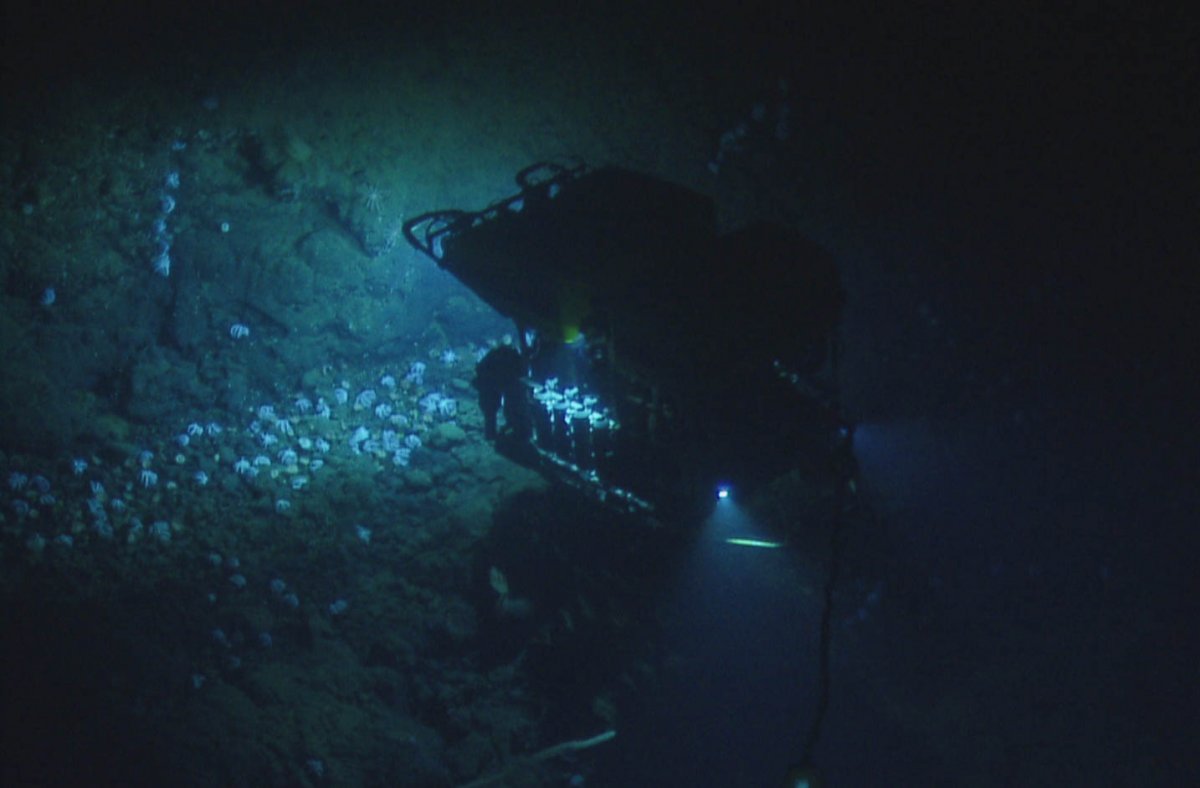
The E/V Nautilus has been working with the Monterey Bay National Marine Sanctuary to send their underwater remotely-operated vehicles (ROVs) to unexplored regions of the Davidson Seamount, about 80 miles (129 kilometers) off the coast of Monterey, California. The researchers discovered an abundance of octopuses in the area — an "Octopalooza," if you will. Read more about the expedition at the Nautilus website.
Brooding eggs
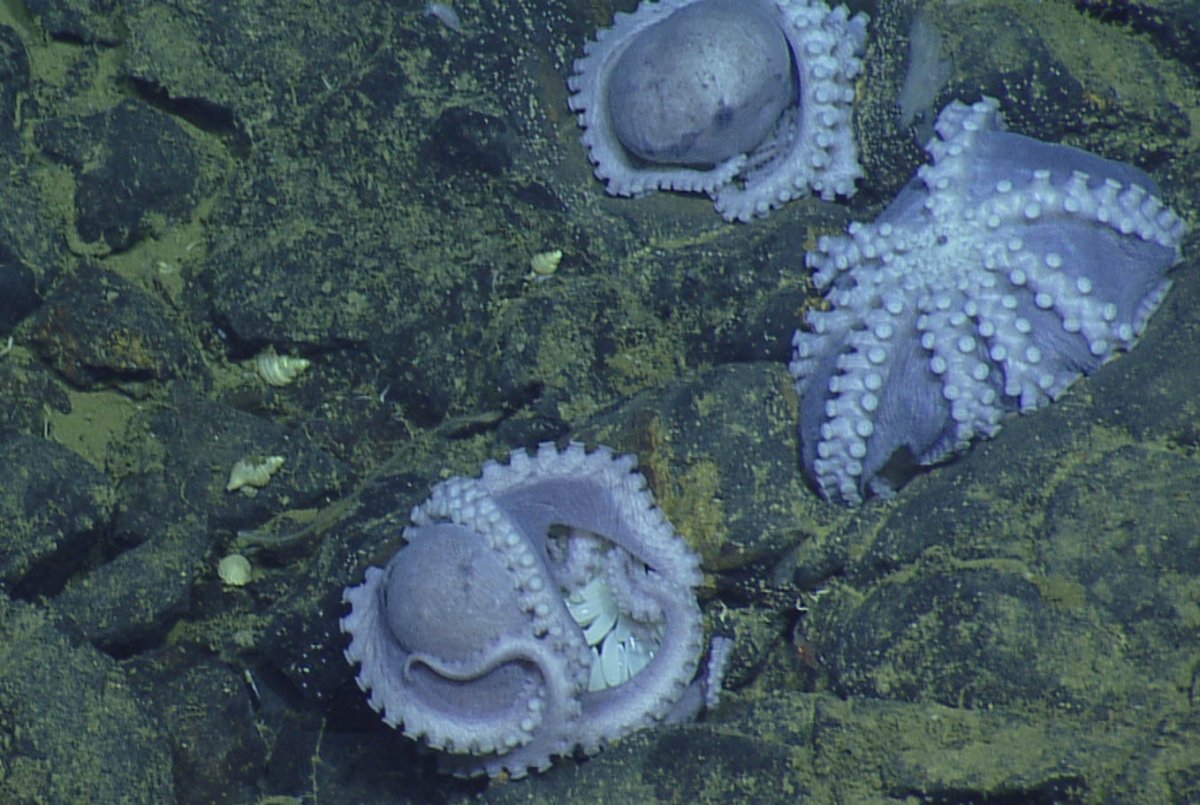
During one of its dives, the Nautilus' ROV spotted several octopuses huddled in the rocks. Look closely and you can see the shiny white eggs beneath those tentacles.
Dedicated mothers
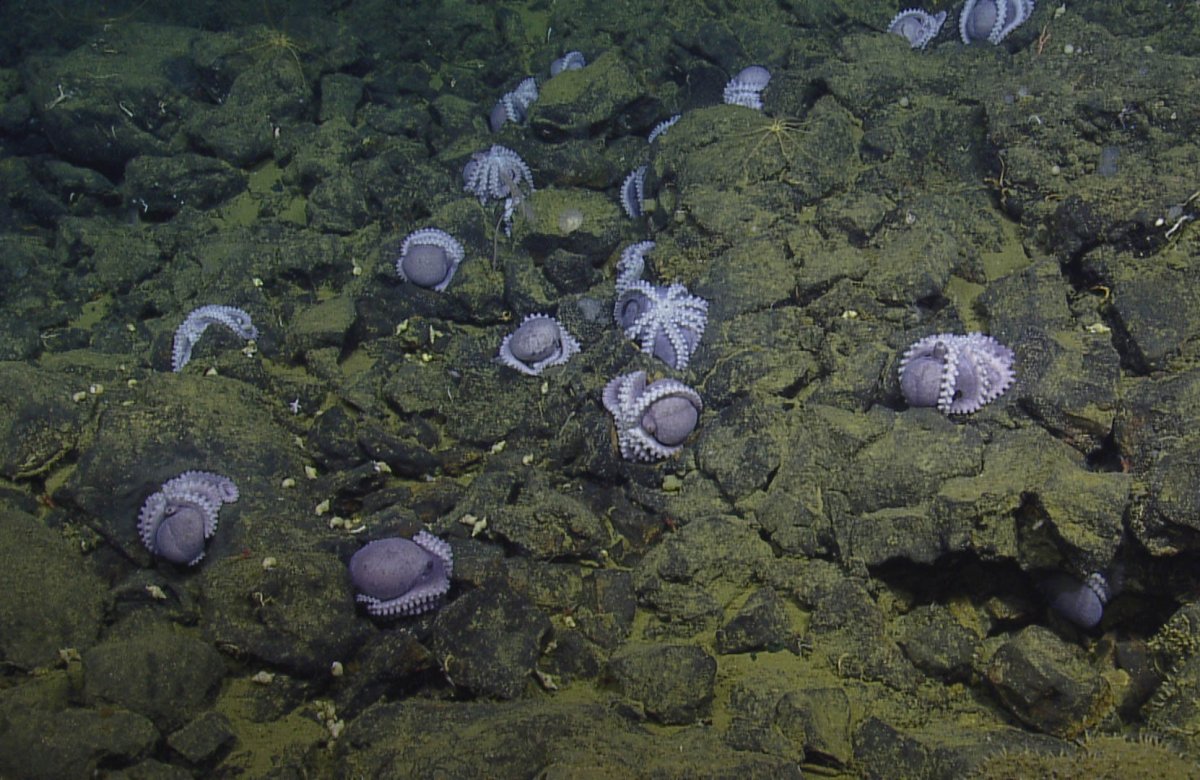
Octopus mothers nestle in the rocks to lay their eggs. They wrap their arms around their heads and sit on top of the eggs to keep them safe and clean.
Rivers of octopuses
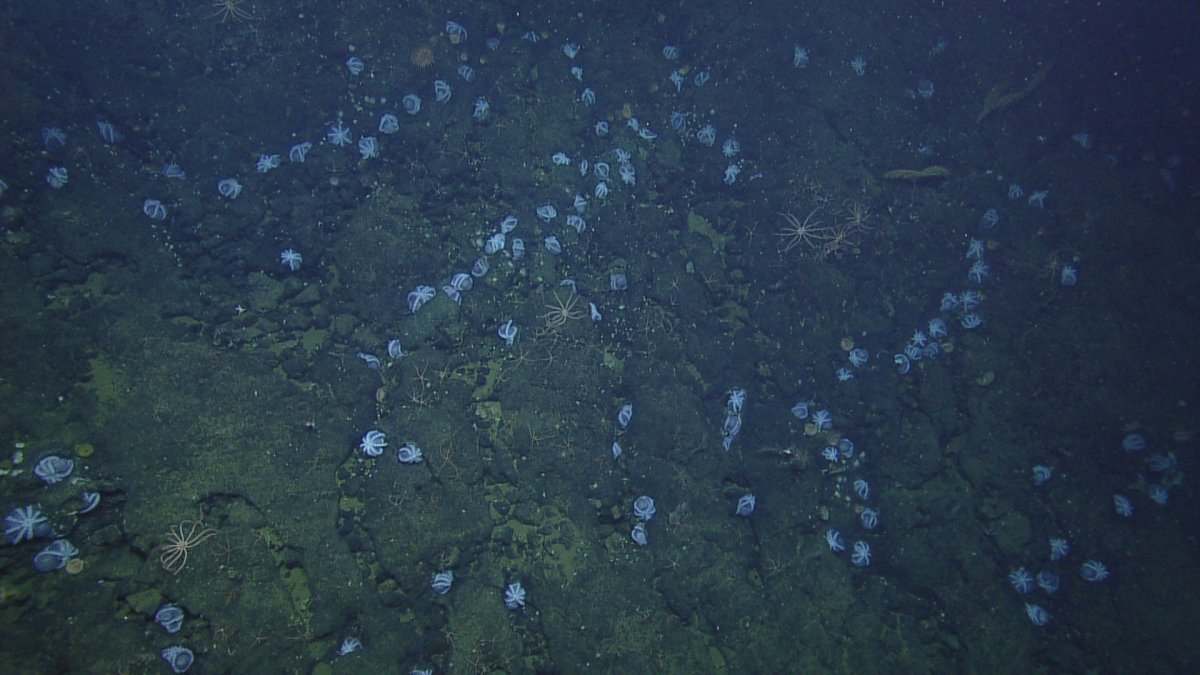
The ROV cruised over hundreds of octopus moms lined up in the rocks. The researchers identified them as Muusoctopus robustus.
Neatly tucked in
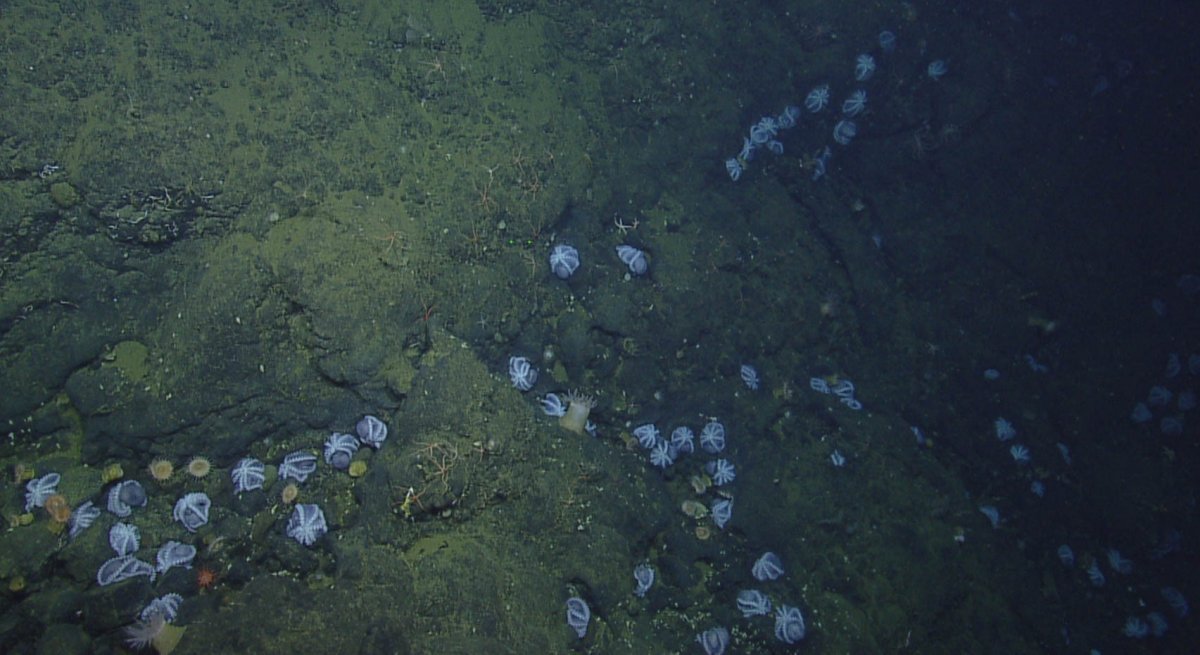
The discovery of the octopus nursery was unprecedented in this region. A similar but smaller aggregation has been found once before off the coast of Costa Rica. Read more about the giant gathering of octopus mothers.
Not alone
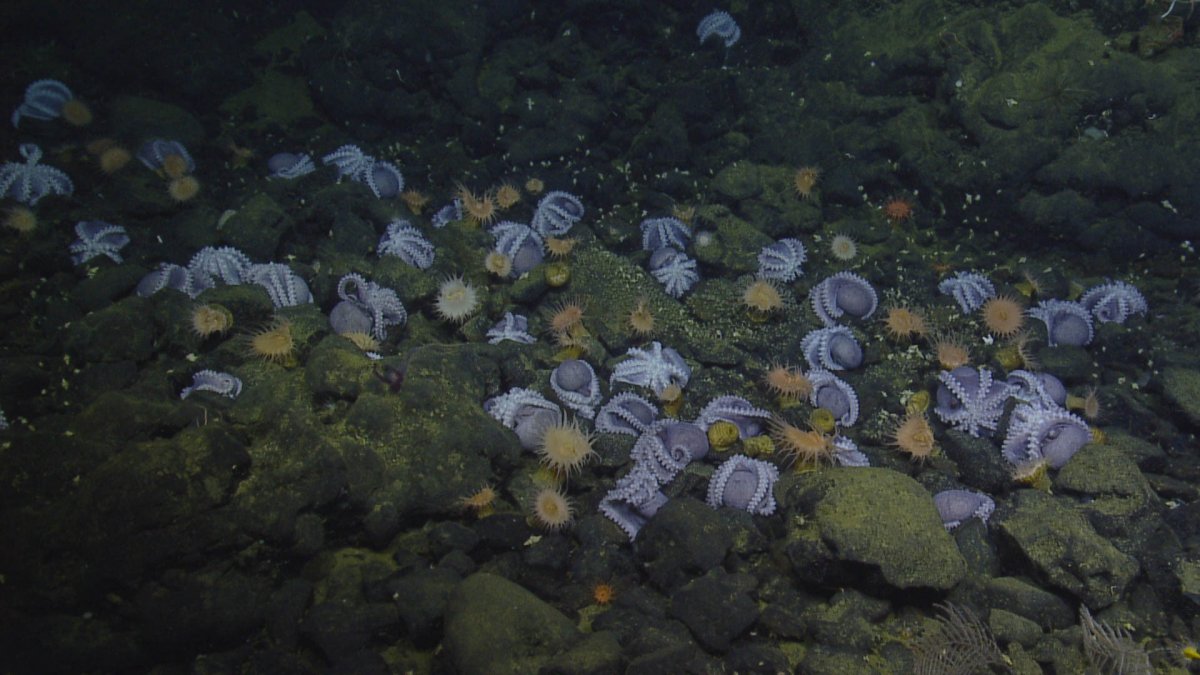
There were numerous other creatures in the octopus nursery, too, such as sea anemones, snails and shrimp.
Eight-legged wonders
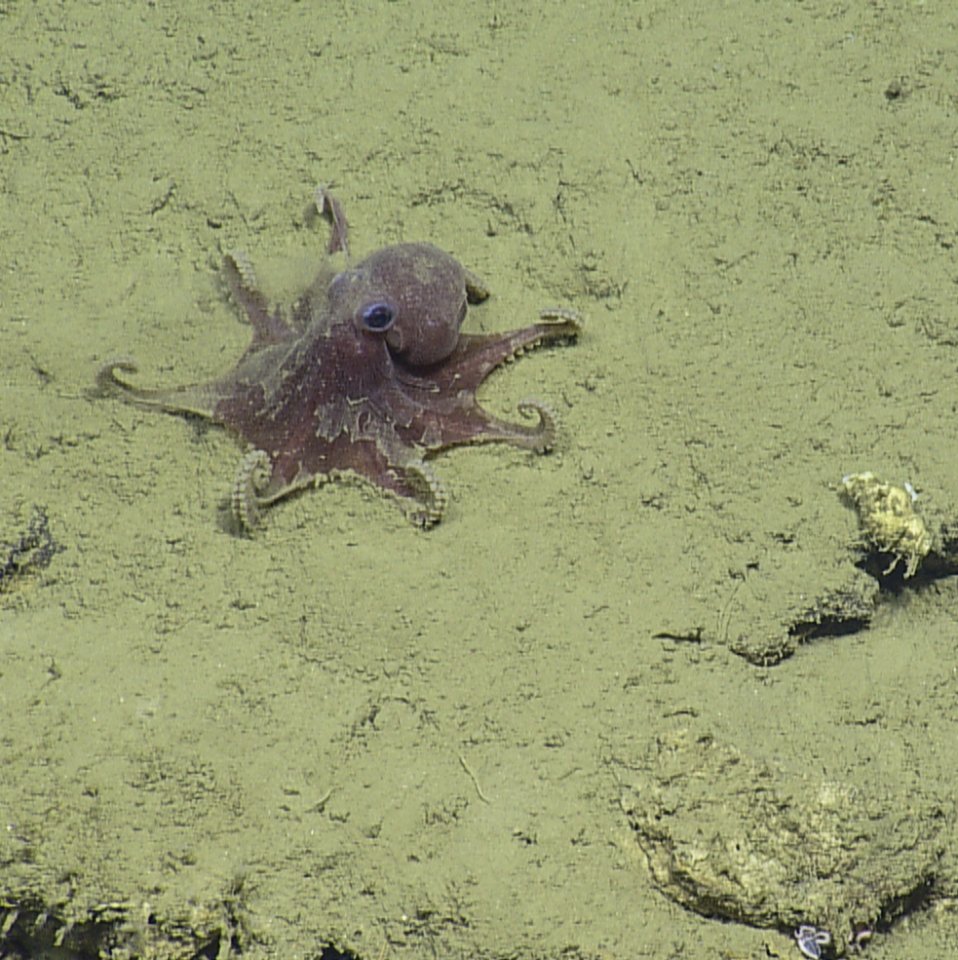
In a different spot, this beautiful dark-red octopus kept its large eyes on the ROV.
Get the world’s most fascinating discoveries delivered straight to your inbox.
Color shifers
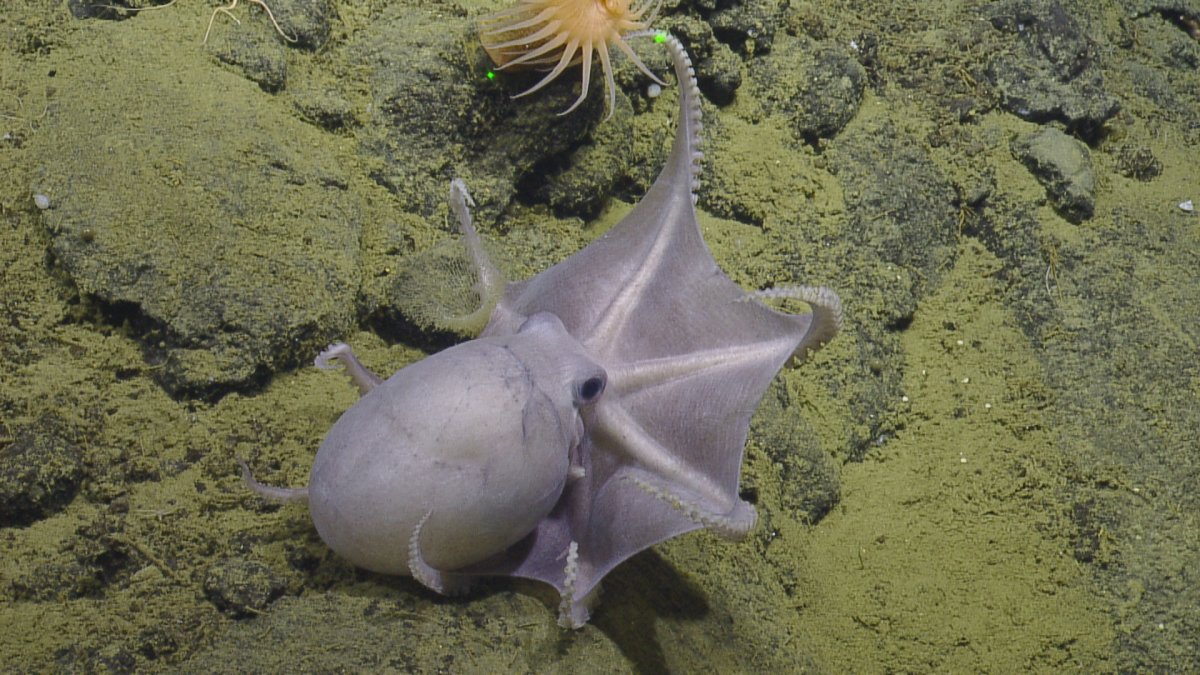
The octopus didn't stay dark-red for long. Many species of octopus can change the color and even the texture of their skin.
A diverse group
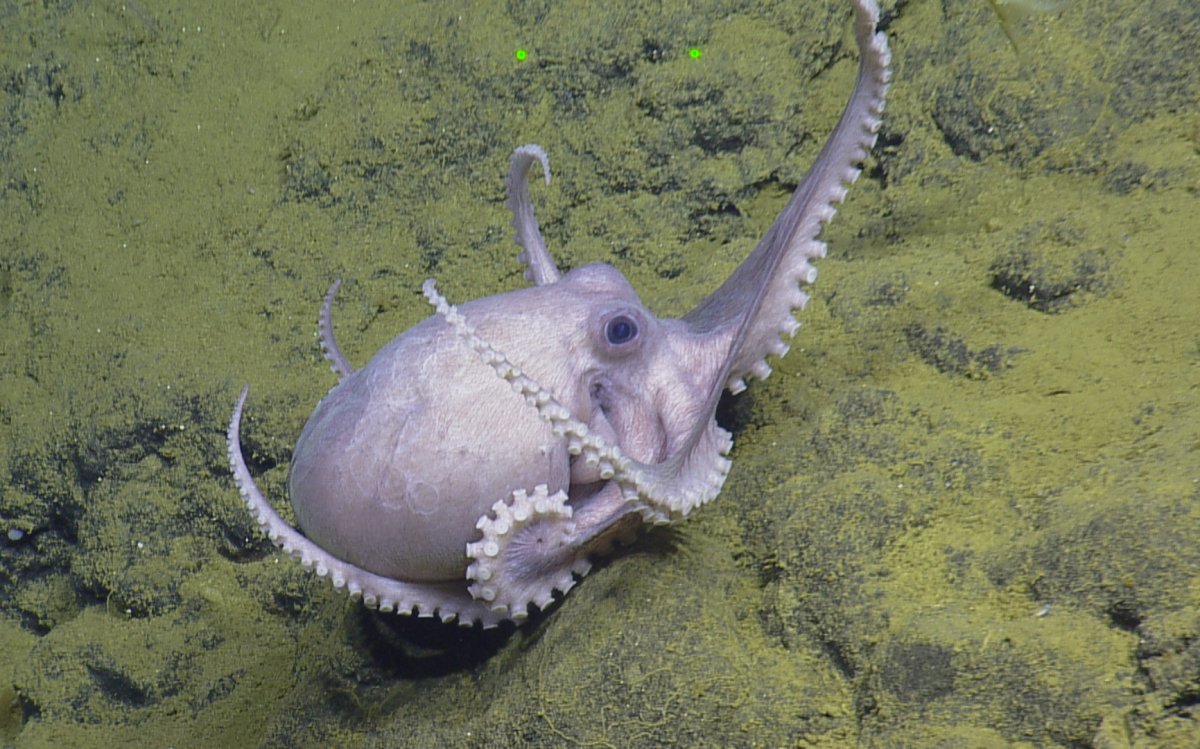
There are more than 200 species of octopus and they come in a wide variety of sizes — from the 16-foot (5 meters) Pacific octopus (Enteroctopus dofleini) to the tiny pygmy octopus (Octopus wolfi) that's smaller than an inch. [Check out this tiny baby octopus.]
No dummies here
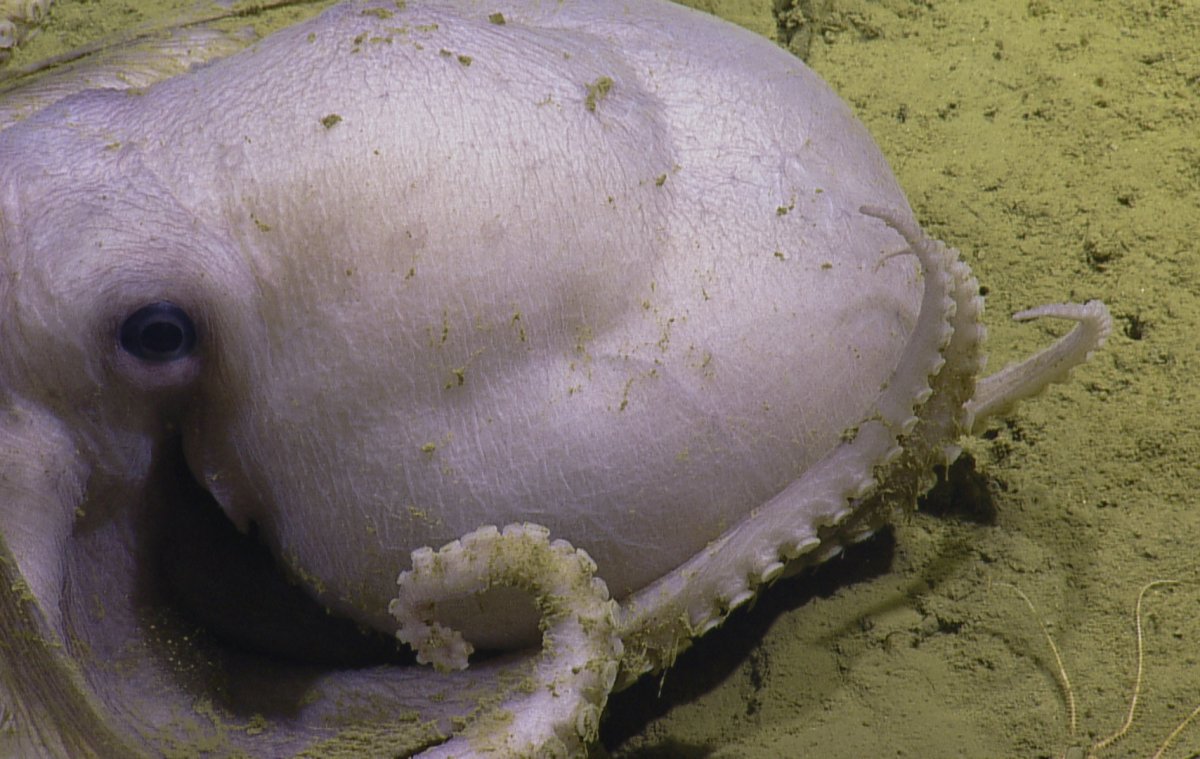
Octopuses are highly intelligent creatures. They're capable of solving complex puzzles and have been known to escape their enclosures.
Advanced dexterity
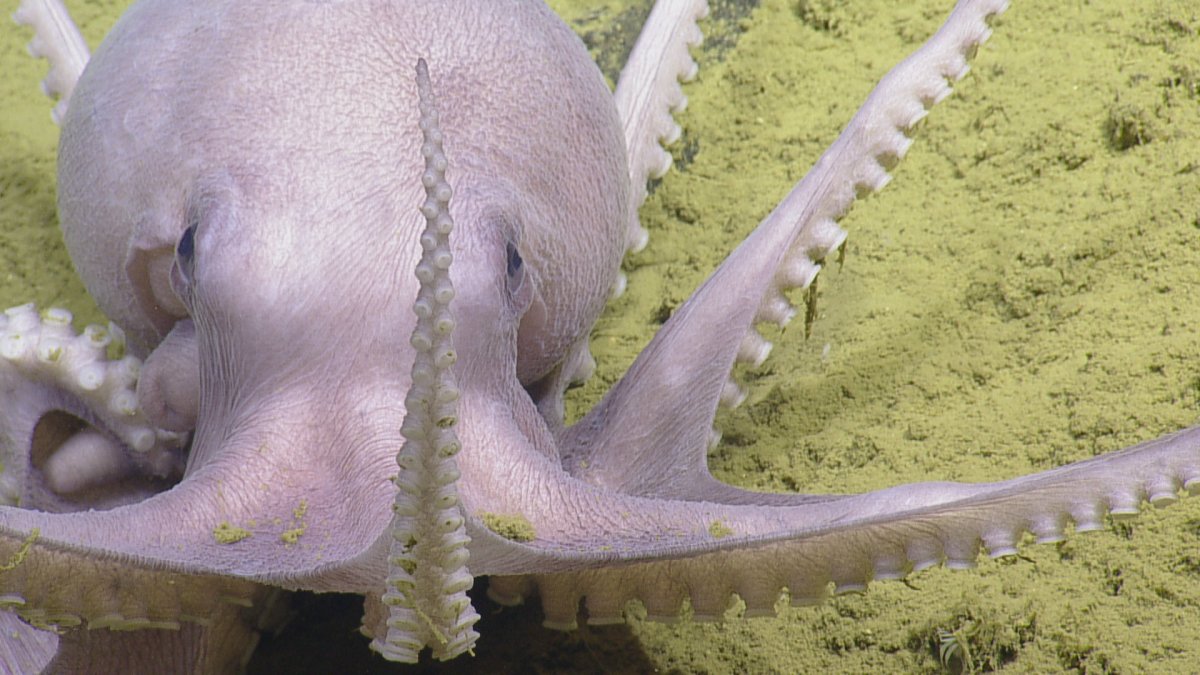
Their arms have a mind of their own. About two-thirds of an octopus's neurons are in their arms, according to the Ocean Exploration Trust.

Kimberly has a bachelor's degree in marine biology from Texas A&M University, a master's degree in biology from Southeastern Louisiana University and a graduate certificate in science communication from the University of California, Santa Cruz. She is a former reference editor for Live Science and Space.com. Her work has appeared in Inside Science, News from Science, the San Jose Mercury and others. Her favorite stories include those about animals and obscurities. A Texas native, Kim now lives in a California redwood forest.
 Live Science Plus
Live Science Plus










